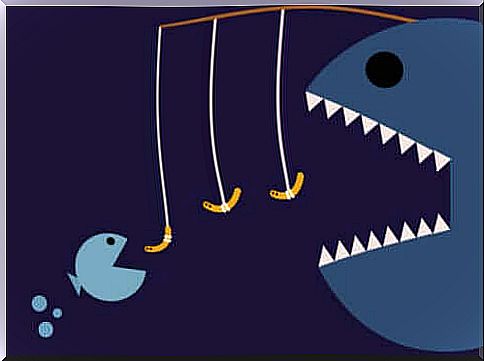How To Spot Consumer Deception?

Advertising and commerce are areas where mechanisms are frequently put in place to entice people to buy. Sometimes these mechanisms rely on confusion or a lack of information to sell more. These are clearly forms of consumer deception.
The law prohibits deceptive advertising practices in most countries. Still, many advertisers and marketers manage not to be as transparent as they should be without breaking the law.
There are ways to implement consumer deception that are so subtle that they go unnoticed. Each of us must be aware of this in order to avoid being manipulated and making unnecessary and expensive purchases. Some of those disappointments are as follows.

Omitting information, one form of consumer deception
Either way, all consumer deception is based on the willful omission of information. However, in some cases this is a fundamental point in advertising a product.
The amazing thing is that this strategy often requires providing a large amount of information. One example is promotions in which credit card holders are invited to events to earn vacations.
During the meeting, they are given a wealth of information about the benefits of the prize to be won, the multiple destinations it covers, hotels, and more. What they are not told is that such vacations take place during the worst times of the year, in a certain place and with a certain number of companions.
Incentive expenses
This involves reducing the quantity or quality of a service or product without notice or direct notification to those who benefit from the product or service in question. Either way, what ends up being sold is different from what was usually offered.
One example is credit cards that offer benefits such as free for certain services or earning points for as long as the card is in use. Gradually, the benefits sometimes turn out to be unattractive in relation to the obligations they generate.
Covering up restrictions and conditions, another form of consumer deception
It is one of the most widely used mechanisms to deceive consumers. It consists of offering significant benefits in exchange for subscribing to a service or purchasing a product. Later, it is discovered that the benefits are limited and that the conditions are very restrictive.
Some online or cable television services are examples. They offer six months of free service, but to access it you have to sign a contract that requires us to hold payment for two years or more, often at a high cost. The sellers get back the money they stopped receiving with the initial offer.

The imperfections
This is a consumer hoax typical of sites dedicated exclusively to “good deals”. The products are offered at very attractive prices for consumers. But it is not timely reported that they have imperfections or that they have been used before.
Often these imperfections only become noticeable over time. This happens, for example, with refurbished electronics that look like new, but obviously aren’t. Or with poorly made clothes.
The free gift, a hoax for consumers
Don’t be naive. Nothing that the trade offers is free. That would be absurd, because the logic of any private enterprise is to obtain profits. It is important to keep this in mind.
Of course, there are times when we receive a “free sample” without being asked for anything in return. However, the cost of all these “free samples” has already been added to the product being promoted. This means that the same product could be bought at a lower price without this type of advertising.
All of these ways of deceiving consumers are often overlooked. Shopping isn’t like it used to be. In the old days, we only bought what we needed. Now it has become quite an experience. For this reason, care must be taken not to be the victim of manipulation.









